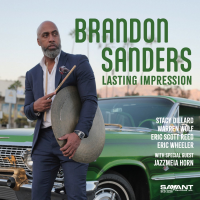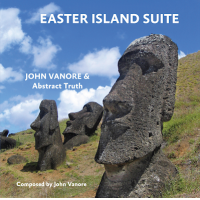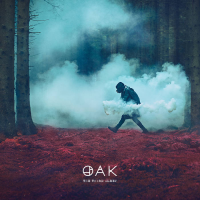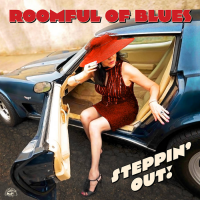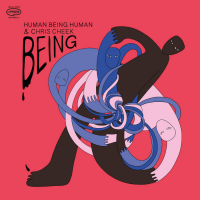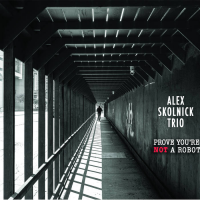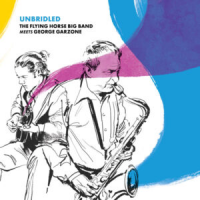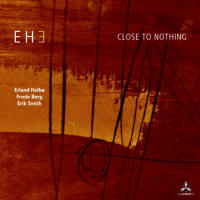Home » Jazz Articles » Album Review » Charles Mingus: Charles "Baron" Mingus: West Coast, 1945-49
Charles Mingus: Charles "Baron" Mingus: West Coast, 1945-49
Performing in venues along Central Avenue, honing his craft through lessons with Red Callender and Herman Rheinshagen, and establishing important relationships (some of which, like those with Eric Dolphy, lasted a lifetime), Mingus transformed from an enthuasiastic young musician to the first call bassist in the southern California scene during the war.
When Leon and Otis Rene established Excelsior Records in 1945, one of the first artists they recorded was Mingus. Those sextet recordings allowed Mingus to record for the first time with Central Avenue musicians like Lucky Thompson, Willie Smith, William Woodman (Britt's brother) and Lee Young (Lester's brother). Woodman proved to be a strong tenor saxophonist, as did, of course, Thompson. In spite of the conventionality of some of the early arrangements, particularly the eventually grating replays of Mingus' "Baby Take A Chance With Me" (a hit at the time), the horn players were assertive, personalizing the tunes. Only when vocalist Claude Trenier joins the group in the second evolution of Mingus' sextet does the singing create some interest beyond the standard male tenor vocalist tradition popular with the big bands. Swooping at the ends of his phrases and adding a grittier quality to the singing, Trenier brought some life to the words that Mingus wrote (which, frankly, were fairly banal).
The second sextet also showed a quickly growing sophistication in Mingus' compositions and arrangements. For instance, "Shuffle Bass Boogie" allows us to hear Mingus' bass pushing the band, the off-the-beat surge of the horns over the blues changes suggesting the germ of an idea that became the famous "Boogie Stop Shuffle."
When Mingus moved on to the Four Star label and recorded with his octet in 1946, promoter War Perkins added the "Baron" appellation to sell records and denote Mingus' presumed musical royalty. The stellar addition to Mingus' group was pianist Lady Will Carr, whose work subtly accentutated the more emotional approach of "This Subdues My Passion," her arpeggios fluttering behind the muted brass. Carr's role, it seemed, assumed the unavoidable yet in-the-background presence of Ellington. Indeed, it is easier to hear Ellington's influence on Mingus in these early recordings than it would be later when his music became freer, more aggressive and more political. Surprisingly, the Tadd Dameron influence is evident too, as Mingus created small tone poems and mixed clarinets with saxophones for a tentative delicacy played over experiments in modulation.
Two of the more obscure recordings appear as "The Dolphins Of Hollywood Session," named after the Detroiter, John Dolphin, who bought War Perkins' record store and started his own label. Recording as a quartet, Mingus' bass influence on his group becomes more prominent, and Buddy Collette's and pianist Jimmy Bunn's contributions shine more clearly than they would as parts of larger groups. Indeed, "These Foolish Things" consists of a Mingus lead, followed by Collette's bright interpretation on alto sax.
Mingus' growth finally seemed to accelerate when he was presented with the opportunity to write and arrange for his Symphonic Airs on the Fentone label and his 22-piece band on the Rex Hollywood label. "Story Of Love" represents Mingus' first foray into Latin music, as he re-creates some of the influences from his childhood near the Mexican border, complete with tambourines and the interweaving of sax and brass sections' lines for a composite blending various colors. "Inspiration," performed by a group of Stan Kenton sidemen, is performed in the more impressionistic style that Mingus adopted in his maturity, the tune eventually being broken into the later Mingus recording called "Portrait."
Thus, from Mingus' early simpler recordings obviously indebted to the swing bands, complete with vocalist, to his more complex orchestral pieces four years later, the growth of one of jazz' greatest composers and band leaders is unmistakable and astounding. Just as quickly as he arose, he fell, though. The Central Avenue scene changing, Mingus dropped out of music and worked as a mail carrier. We can thank Red Norvo for hunting down Mingus and hiring him for a trio date, which eventually led to Mingus' second and lifelong resurgence.
Befitting the importance of this CD, Uptown Records has included a comprehensive essay, which details Dr. Bob Sunenblick's work in exhaustively tracking down the finest details of Mingus' California years through searches of documents and interviews with survivors. In addition, Mingus scholar Andrew Homzy includes a perceptive analysis of each tune, as well as biographies of the musician, in the 96-page booklet accompanying the CD.
More compact than the multi-CD box sets, Charles 'Baron' Mingus: West Coast 1945-1949 is no less significant. As a final clue to Mingus' work during those years, the last track consists of a tape recording of Mingus developing on the piano an introduction to "He's Gone," which the Symphonic Airs recorded. Plunking out each note and pulling together ideas, we get to hear Mingus' thoughts unfolding through the preserved scratchiness of the vinyl before the fadeout.
Track Listing
The Texas Hop, Baby Take A Chance With Me, Lonesome Woman Blues, Swingin' An Echo, Ain't Jivin' Blues, Shuffle Bass Boogie, Weird Nightmare, Make Believe, Bedspread, This Subdues My Passion, Pipe Dream, Mingus Fingers, These Foolish Things, Story Of Love, He's Gone, Pennies From Heaven, Lyon's Road, Say It Isn't So, Boppin' In Boston, The Story Of Love, Inspiration, Dialogue Between Mingus And Ralph Manza
Personnel
Charles Mingus
bass, acousticCharles Mingus, bass, vocals; N.R. Bates, Karl George, John Plonsky, King George, John Anderson, John Coppola, Vernon Carlson, Allen Smith, Andy Peele, Tommy Alexander, Buddy Childers, Hobart Dotson, Eddie Preston, trumpet; Willie Smith, Bud Hooven, alto sax; Buddy Collette, Bob Olney, Art Pepper, Jewell Grant, alto sax, clarinet; Eric Dolphy, alto sax, flute, clarinet; Maxwell Davis, William Woodman, Lucky Thompson, Morrie Stewart, Alex Megyesy, Don Smith, tenor sax; Gene Porter, clarinet, baritone sax; Herb Caro, baritone sax; Dante Perfumo, flute; Harry Coker, Haig Eshow, Bob Lowry, Hawes Coleman, Britt Woodman, Jimmy Knepper, Marty Smith, trombone; Robert Mosley, Wilbert Baranco, Lady Will Carr, Jimmy Bunn, Richard Wyands, Donn Trenner, Russ Freeman, piano; Buddy Harper, Louis Speigner, guitar; Jean McGuire, cello; Red Callender, bass; Roy Porter, Lee Young, Chuck Thompson, Cal Tjader, drums; Johnny Berger, drums, percussion; Oradell Mitchell, Claude Trenier, Herb Gayle, Everett Pettis, Helen Carr, vocals
Album information
Title: Charles "Baron" Mingus: West Coast, 1945-49 | Year Released: 2001 | Record Label: Uptown Records
Tags
PREVIOUS / NEXT
Support All About Jazz
 All About Jazz has been a pillar of jazz since 1995, championing it as an art form and, more importantly, supporting the musicians who make it. Our enduring commitment has made "AAJ" one of the most culturally important websites of its kind, read by hundreds of thousands of fans, musicians and industry figures every month.
All About Jazz has been a pillar of jazz since 1995, championing it as an art form and, more importantly, supporting the musicians who make it. Our enduring commitment has made "AAJ" one of the most culturally important websites of its kind, read by hundreds of thousands of fans, musicians and industry figures every month.










